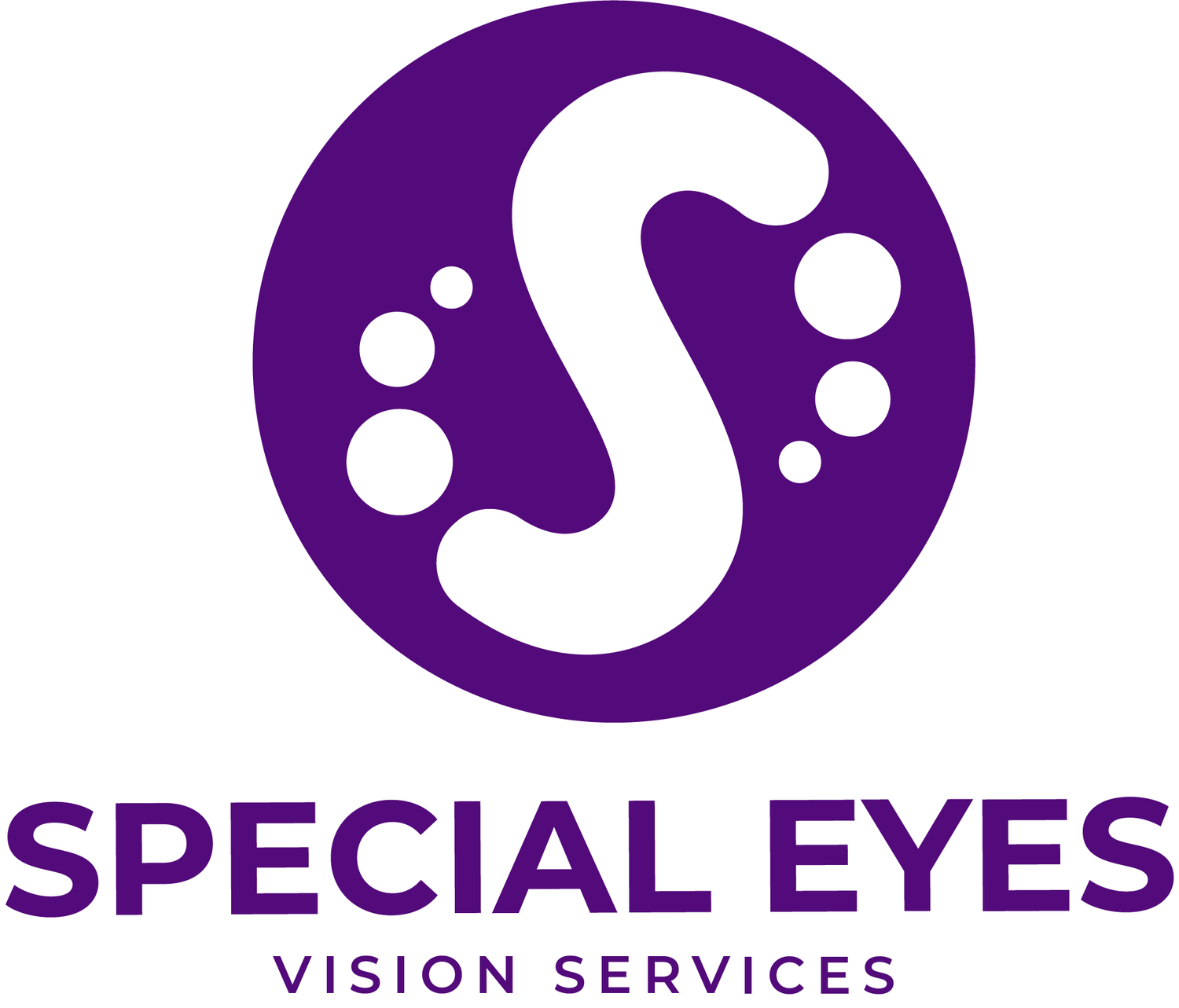Seeing the Unseen: Identifying Vision Impairment in Individuals with Complex Disabilities
Image of a white cane user approaching a flight of steps.
When you picture an eye test, what comes to mind? Probably a bright room, a letter chart on the wall, and someone reading lines aloud. But what if a person can’t read letters, match shapes, or even sit in a chair for more than a few seconds?
For children and adults with complex disabilities, traditional vision tests can be inaccessible. These individuals are often described as “difficult to test”—not because they’re uncooperative, but because the system hasn’t adapted to meet their needs.
My Role: Spotting Vision Impairment Where It's Often Missed
My work starts where most vision care ends. I specialise in identifying vision impairments in people with complex disabilities—particularly when it has never been picked up before. This is often the missing piece families and support teams have been searching for.
By using flexible, accessible assessment tools, I can evaluate how someone is seeing—even if they don’t use words, struggle with attention, or need to move around during testing.
Vision Loss Often Goes Unnoticed
Vision impairment is significantly more common in people with complex disabilities, yet it’s frequently overlooked. It may be mistaken for behavioural challenges, cognitive delay, or simply go unnoticed because the person can’t express what they’re experiencing.
Uncovering a vision impairment can explain so much. It’s not about giving a label—it’s about unlocking understanding, and more importantly, access to the right support.
What Happens After Vision Impairment Is Identified?
Recognising a vision impairment is only the first step. From there, it’s important to understand what supports are available and what each one contributes.
Medical Support: Ophthalmology
Ophthalmologists provide medical diagnosis of eye diseases. Their role is critical in determining the underlying cause of vision loss and providing any necessary medical treatment or ongoing monitoring. I work closely with ophthalmologists to ensure families understand the diagnosis in functional terms—not just what’s on the report, but what it means for everyday life.
Functional and Practical Support:
Vision Australia, Guide Dogs, Independent Providers
These services offer:
Orientation and mobility (O&M) training
Daily living skills and independence programs
Support with assistive technology
Recreational and social inclusion opportunities
Condition-Specific Support:
Macular Disease Foundation Australia – Education and support for people with macular conditions
Charles Bonnet Syndrome Association – Support for people experiencing visual hallucinations due to vision loss
Glaucoma Australia – Information and community engagement around glaucoma
These organisations provide valuable resources tailored to the condition a person is managing.
Educational Pathways:
In some states, services like ELVAC (Education Low Vision Assessment Centre) link families with advisory visiting teachers who help schools make the necessary adjustments for students with low vision.
What My Service Adds
I bridge the gap between diagnosis and daily function. While other services support vision once it’s known, I help identify it when it’s been missed—and explain how it affects learning, communication, mobility, and engagement.
My assessments are tailored for people with complex needs, using more specialised standardised tools such as:
Cardiff Cards (Low Vision version)
Berkeley Rudimentary Vision Test
Contrast sensitivity assessments
MNREAD reading analysis
I also support families and professionals in:
Applying for NDIS support
Making environmental and educational adjustments
Interpreting ophthalmology reports in plain language
Understanding what to expect as the individual’s needs evolve
Whether it's helping a non-speaking child access a tactile learning approach a teenager navigate school with reduced contrast sensitivity, or an older person who is losing their vision due to glaucoma or macular degeneration, I’m here to ensure vision isn’t a hidden barrier.
Complementing, Not Replacing Ophthalmology
My work doesn’t replace ophthalmology—it complements it. Eye specialists diagnose conditions. I help families and teams understand what those diagnoses mean in the real world: in the classroom, at therapy, on the bus, and at home.
Need Help Understanding a Vision Diagnosis—or Suspect One Might Be Missed?
If you're supporting someone who struggles with traditional vision tests—or you’ve always had a gut feeling that something isn’t quite right—I can help.
Everyone deserves the chance to see their world clearly. Even if they can’t tell you when it’s blurry.
Let’s talk about how we can uncover vision impairment and create access for the people who need it most.
Call or email, or Click here to book an initial phone consult

